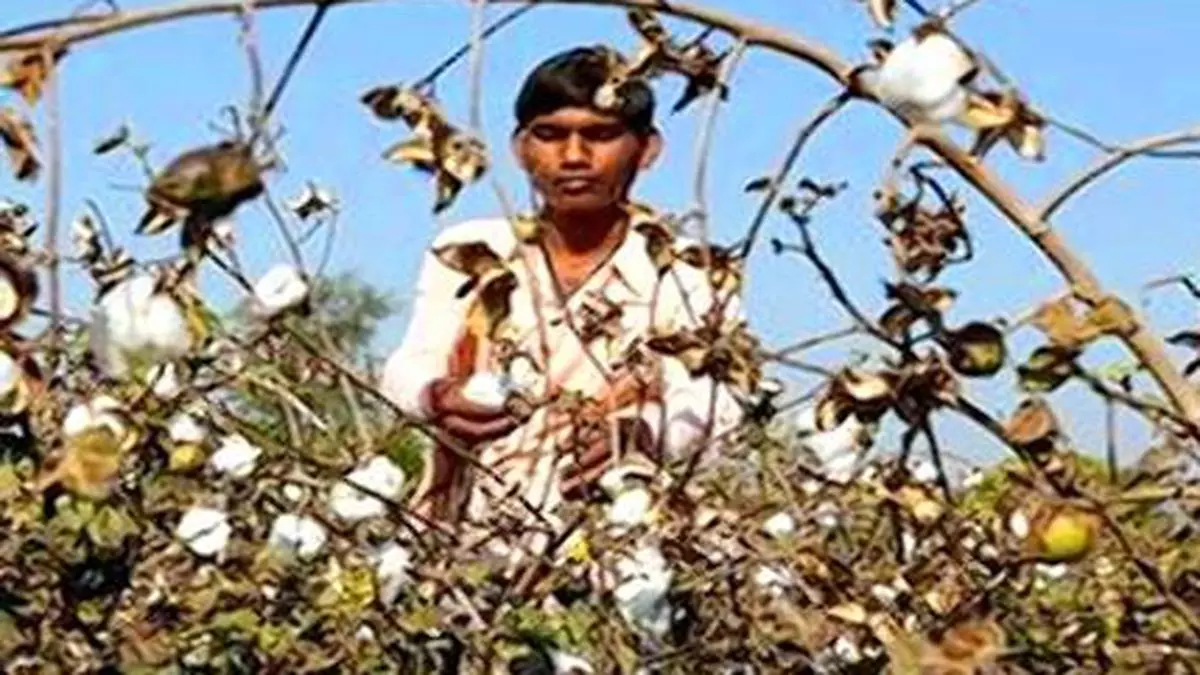Bangladesh begins demo trial cultivation of Bt cotton
Bangladesh has initiated limited cultivation for “demonstration trials” of two varieties of Bt (Bacillus thuringiensis) cotton across 13 production zones and five cotton research centres, the US Department of Agriculture (USDA) has said.
The Dhaka post of USDA’s Foreign Agricultural Service said the cultivation began after the National Committee on Biosafety granted approval on August 20, 2023 following an application from Bangladesh’s Cotton Development Board (CDB).
The CDB sought the release of JKCH 1947 and JKCH 1050 Bt varieties for “demonstration trials”. These trials are taking place on the plots of 138 farmers (0.25 acres/plot) and 30 on farm research plots (0.11 acre/plot), collectively 37.8 acres, the Dhaka post said.
Planting delayed
Bt cotton farmers told the Dhaka Post that they planted the Bt seeds a tad late as they received them late. Besides, they experienced heavy rainfall after seed germination, leading to some damage and reduced vegetative growth.
However, the farmers pointed out visible differences in the Bt plants compared to traditional varieties. “The farmers remain hopeful that Bt cotton cultivation will reduce their costs for insecticides,” the post said.
These Bt cotton varieties can resist bollworm and Fall armyworm in the plant.
The development comes even as India has been unable to introduce any new Bt variety, particularly the herbicide tolerant Bt one, since 2006.
The Indian angle
Hyderabad-based JK Agri Genetics Ltd, an arm of the JK Organisation, collaborated with the Bangladesh government to hold field trials of these Bt cotton varieties.
However, Gyanendra Shukla, President and Director of JK Agri Genetics, better popularly known as JK Seeds, told businessline two years ago that “We are doing nothing on our own. Nor are we engaged in any commercial activity in Bangladesh.
Bangladesh’s CDB is dedicated to the development of hybrid and short-duration, high-yielding cotton varieties which exhibit desirable fibre characteristics.
The Dhaka post said the CDB, in collaboration with a private seed company based in Bangladesh, has been actively importing hybrid cotton seeds from China. Research is also being conducted to assess the adaptability of these imported varieties to the local conditions.
Cotton output target
According to the CDB, cotton is cultivated in 39 of the 64 districts in Bangladesh. But cotton cultivation makes up only 0.55 per cent of the total 8.1 million hectares of arable land in the neighbouring country.
Locally, Bangladesh produces less than 2 per cent of its total cotton consumption with the area under the natural fibre rising only marginally since 2016.
The Bangladesh Government has set a target to meet 10 per cent of its demand for the fibre through domestic production. Most of the cotton is cultivated in Bangladesh during the rabi season. But expansion in cotton cultivation has been hampered by the fact that growers have to forego cultivating aman rice, cultivated during June-July, and winter vegetables.
